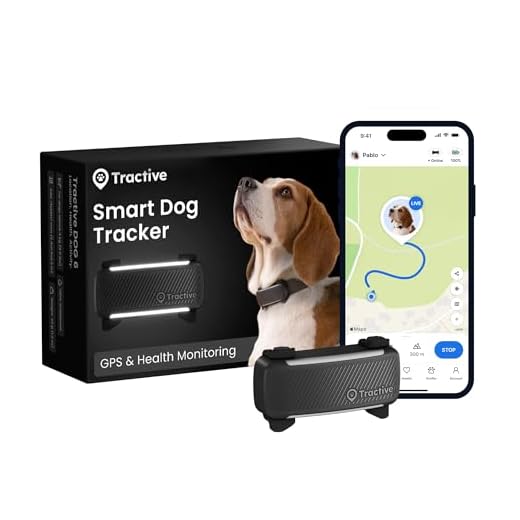


It’s best to keep your furry friend away from the droppings of wild animals. While it isn’t toxic in the traditional sense, ingestion of these droppings can lead to various health issues for your pet. Common parasites and bacteria found in animal faeces can cause gastrointestinal distress, leading to vomiting and diarrhoea.
From my own experience, I once caught my pup attempting to snack on some droppings during our hike. I quickly intervened, but it got me thinking about the potential risks. Consulting with a vet later confirmed my concerns; infections from parasites like giardia or worms are possible if a dog consumes contaminated waste. Regular veterinary check-ups and keeping an eye on what your dog explores can mitigate these risks.
It’s also wise to ensure your canine companion is up-to-date on vaccinations and preventative medications. This simple step can safeguard against many of the illnesses associated with such encounters. Always be vigilant during walks or outdoor adventures; prevention is far easier than treatment.
Is Deer Waste Harmful to Canines?
No, the excrement of these animals is not toxic to canines. However, it can carry parasites and bacteria that might lead to gastrointestinal issues if ingested. Symptoms such as vomiting or diarrhoea can occur, so it’s wise to monitor your furry friend closely after any unsupervised encounters with such droppings.
Preventive Measures
To keep your companion safe, ensure they are trained to avoid eating anything off the ground during walks or hikes. Regular vet check-ups and preventive medications for parasites can also help safeguard against potential infections. Keeping an eye on their behaviour after outdoor excursions is key–if they seem unwell, consult your veterinarian immediately.
What to Do If Ingestion Occurs
If your canine accidentally consumes this waste, stay calm. Observe for any signs of distress, such as lethargy or changes in appetite. In most cases, they may not exhibit any symptoms, but if any unusual behaviour arises, seeking veterinary advice is advisable. Early intervention can prevent more serious health issues.
Understanding the Composition of Deer Droppings
It’s crucial to know that the excrement of these animals primarily consists of undigested plant materials. This includes various types of grasses, leaves, and fruits, which can influence the health of animals that might come into contact with it.
- Plant Matter: The bulk of the waste is made up of fibrous plant material. This means it can carry seeds and other organic traces that may not be harmful but can attract certain pests.
- Bacteria and Parasites: While the plant matter is generally safe, there are potential risks from bacteria and parasites present in the droppings, which can be harmful if ingested.
- Nutrients: The waste is rich in nutrients like nitrogen, phosphorus, and potassium, making it beneficial for soil when broken down. However, this doesn’t translate to safety for animals that might consume it.
Understanding these components can help in assessing the risks associated with your pet’s curiosity. If your furry friend displays unusual eating habits, like refusing to chew their food, it might be worth exploring factors that could impact their appetite. For insights on this topic, check out why wont my dog chew his food.
Always monitor your pet’s behaviour and consult a veterinarian if you suspect any health issues arising from their environment or dietary choices.
Signs of Toxicity in Canines After Ingestion
If your canine companion has consumed something potentially harmful from the forest floor, look for immediate signs of distress. Common symptoms include vomiting, diarrhoea, excessive drooling, or lethargy. These indicators can manifest within a few hours post-ingestion, so monitoring your pet closely is crucial.
A change in appetite may also signal trouble. If your furry friend refuses food or shows reluctance to drink water, it’s a concern. Additionally, watch for any unusual behaviour, such as restlessness, pacing, or hiding, which can indicate discomfort or anxiety.
Physical signs like tremors, seizures, or difficulty breathing should prompt an immediate visit to the vet. These conditions can escalate quickly and require urgent medical attention. Also, keep an eye on their gums; if they appear pale or bluish, this may indicate a serious issue.
Be mindful of abdominal distension or sensitivity when you gently press on their belly. This could suggest gastrointestinal distress. Pay attention to any changes in urination patterns; either increased frequency or straining can be alarming.
If you notice any of these symptoms, don’t hesitate to contact your veterinarian. It’s always better to err on the side of caution when it comes to the health of your beloved pet. Prompt action can make a significant difference in their recovery.
What to Do If Your Dog Eats Deer Droppings
If your canine companion has consumed animal waste, the first step is to remain calm. Monitor your pet closely for any signs of distress or illness. It’s crucial to act quickly, but panic won’t help the situation.
Immediate Actions
Check your furry friend for any unusual behaviour such as vomiting, diarrhoea, or lethargy. If you notice any of these symptoms, contact your veterinarian without delay. Providing the vet with specific details, including the time of ingestion and any symptoms, can aid in their assessment.
Keep an eye on their eating habits and water intake. Ensure they have access to fresh water to help flush out their system. If your pet seems fine initially, it’s still wise to keep an eye on them for the next 24-48 hours, as symptoms may not appear immediately.
Preventive Measures
To avoid future incidents, consider training your pet to respond to commands like “leave it” or “come here.” These commands can be invaluable in preventing them from consuming anything harmful during walks. Regularly cleaning up in areas where wildlife frequents can also help reduce temptation.
Lastly, ensure regular check-ups with your vet to maintain your pet’s overall health. This proactive approach can help mitigate the risks associated with unexpected dietary choices. Your pet’s well-being is always the top priority.
Preventing Your Canine from Consuming Animal Waste
To keep your furry friend from nibbling on unwanted waste, consider using a muzzle during walks in areas where wildlife is common. This can be a straightforward solution to prevent access while still allowing them to enjoy their outing.
Training plays a significant role in discouraging this behaviour. Teach commands like “leave it” or “no” during walks. Use treats to reinforce positive behaviour when your pet ignores animal droppings. Consistency is key; practice these commands regularly to make them second nature.
Keep your four-legged companion on a short lead, especially in regions known for wildlife. This not only helps in controlling their movements but also allows you to redirect their attention when they show interest in something undesirable.
Engaging your pet in stimulating activities can reduce the likelihood of unwanted behaviours. Regular exercise, puzzle toys, and interactive play can keep their mind occupied, leaving less time for scavenging.
Consider using a deterrent spray on areas where waste tends to accumulate. These sprays can make the area less appealing to your pet. Always ensure that any products used are safe and non-toxic.
| Tip | Description |
|---|---|
| Muzzle Use | Prevents access to harmful items during walks. |
| Training Commands | Teach “leave it” or “no” with positive reinforcement. |
| Short Lead | Control movements in wildlife-heavy areas. |
| Engaging Activities | Keep your pet mentally and physically stimulated. |
| Deterrent Sprays | Make areas less appealing with safe sprays. |
Regular check-ups with the vet can help monitor your pet’s health, especially if they have been exposed to potentially harmful substances. If you notice any unusual behaviour, consult a professional immediately.
Consulting a Veterinarian: When Is It Necessary?
If your furry companion has ingested waste from wild animals, seeking veterinary advice is crucial. Symptoms such as vomiting, diarrhoea, lethargy, or unusual behaviour should prompt an immediate call to the vet. These signs may indicate gastrointestinal distress or other complications that require professional attention.
In cases where your pet shows no immediate symptoms but has consumed such matter, it’s still wise to consult a veterinarian. Even if the animal appears fine, some pathogens can cause delayed reactions or long-term health issues. It’s better to be safe and get an expert opinion.
Additionally, if your pet has pre-existing health conditions or is on medication, reaching out for advice is essential. The interaction between their health status and any ingested materials could lead to complications that a vet can better assess.
For peace of mind, consider bringing a sample of the ingested material to the appointment. This can assist the veterinarian in making a more accurate diagnosis and determining the best course of action.
Finally, if your companion has been exposed to wild animal environments frequently, discussing preventive measures with your vet can help safeguard their health in the future. Regular check-ups can also keep you updated on vaccinations and treatments that may be necessary in such situations.






